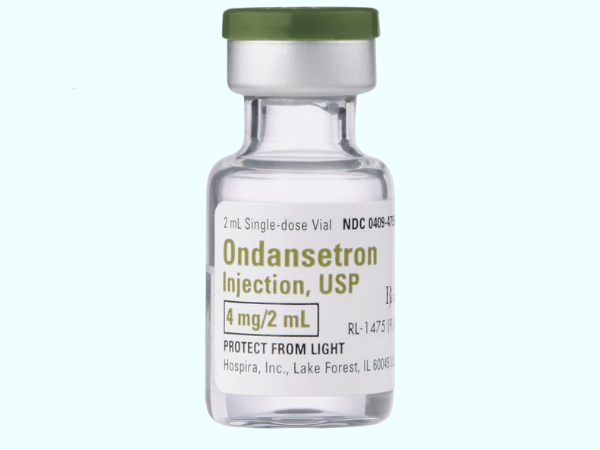Yes, you can take Tylenol with Zofran as there are no direct interactions. Always consult your healthcare provider for personalized advice.
Navigating the world of medications can often be complex, especially when it comes to combining different drugs. Tylenol, known generically as acetaminophen, is a widely used over-the-counter pain reliever and fever reducer. Zofran, or ondansetron, is a prescription medication that helps prevent nausea and vomiting caused by surgery or cancer treatments.
Patients frequently need to manage multiple symptoms, and understanding the compatibility of medications like Tylenol and Zofran is crucial. Taking Tylenol with Zofran is generally considered safe since they work in different ways and do not have known harmful interactions. Nonetheless, individual health conditions and other medications must be taken into account, so it’s essential to get guidance from a healthcare professional before combining these drugs.
Interactions Between Tylenol And Zofran
Many people wonder about taking Tylenol with Zofran. Understanding the interactions between Tylenol and Zofran is crucial. These two medications serve different purposes. Tylenol, known for reducing fever and relieving pain, and Zofran, often used to prevent nausea and vomiting. Let’s dive into their interactions.
Potential Interaction Risks
When it comes to combining medications like Tylenol and Zofran, being aware of potential risks is essential. Generally, these two drugs have a low chance of harmful interaction. However, it’s important to consider certain factors:
- Individual health conditions can change how these drugs work together.
- The dosage of each medication plays a significant role.
- Other medications you’re taking could affect their interaction.
Here’s a simple table to highlight key considerations:
| Factor | Details |
|---|---|
| Health Conditions | Check with a doctor if you have liver issues or gastrointestinal problems. |
| Dosage | Follow the prescribed or recommended amounts closely. |
| Other Medications | Inform your doctor about all other medications you’re taking. |
Even though risks are minimal, staying informed and cautious is always best.
Safe Usage Recommendations
To ensure the safe use of Tylenol and Zofran together, here are some recommendations:
- Consult your doctor before starting these medications together.
- Follow the dosage guidelines for both medications carefully.
- Keep an eye on signs of adverse reactions, such as unusual tiredness or stomach pains.
Adhering to these guidelines helps minimize risks:
- Check with a healthcare provider for personalized advice.
- Always read medication labels and instructions.
- Report any side effects to your doctor immediately.
By taking these steps, you can use Tylenol and Zofran together safely and effectively.

Therapy Zofran IV
Zofran IV ability to improve patient comfort significantly enhances the overall treatment experience, making it an essential tool in patient care.
Medical Conditions And Precautions
Many people wonder if they can mix Tylenol and Zofran. It’s important to think about your health and any medical conditions you have. Let’s look at what you need to know if you have liver problems or allergies. Always ask your doctor what’s best for you.
Patients With Liver Issues
Tylenol (acetaminophen) and Zofran (ondansetron) are both medicines that help in different ways. Tylenol eases pain and fever. Zofran stops you from feeling sick. But, if you have liver problems, you need to be careful. Your liver helps break down these medicines. A sick liver might have trouble doing this. Here’s what to keep in mind:
- Less is more: Take the smallest amount of medicine that helps you feel better.
- Check with your doctor: They can tell you how much medicine is safe.
Here’s a table showing why being careful is key:
| Medicine | Why Caution is Needed |
|---|---|
| Tylenol | Too much can hurt your liver even more. |
| Zofran | May be harder for your liver to process. |
Remember: Always talk to your doctor before taking new medicines.
Patients With Allergies
If you have allergies, especially to medicines, you must be careful. Both Tylenol and Zofran can cause allergic reactions in some people. Signs of an allergic reaction include:
- Rash or hives
- Itching
- Swelling, especially of the face, tongue, or throat
- Trouble breathing
What to do if you have an allergy:
- Stop taking the medicine.
- Call your doctor right away.
- If you have trouble breathing, call emergency services.
Before taking Tylenol or Zofran, tell your doctor about any past allergies to medicines. They can help you find a safe option. Safety comes first!

Dosage And Timing
Many people wonder about taking Tylenol with Zofran. It’s crucial to understand the right dosage and timing. This can ensure safety and effectiveness. Let’s dive into the specifics about how to manage these medications together.
Appropriate Dosage
When combining Tylenol (acetaminophen) with Zofran (ondansetron), it’s essential to follow proper dosage guidelines. Both medications have their own recommended amounts. You should not exceed them. For adults, Tylenol can be taken in doses of up to 1000mg per single dose, not surpassing 3000mg per day. On the other hand, Zofran dosage varies based on the condition being treated. It’s typically given in smaller doses, such as 4mg to 8mg. Here’s a clearer breakdown:
- Adult Tylenol: 650mg to 1000mg every 4 to 6 hours.
- Zofran for nausea: 4mg every 8 hours.
For children, doses must be adjusted by weight. A healthcare provider can give the best guidance. Always check with a doctor before starting any new medication. Especially when combining drugs. This table shows typical adult doses:
| Medication | Dose | Frequency |
|---|---|---|
| Tylenol | 650mg to 1000mg | Every 4 to 6 hours |
| Zofran | 4mg to 8mg | Every 8 hours |
Remember, these are general guidelines. Your doctor may suggest different doses based on your health needs.
Timing Of Administration
Knowing when to take Tylenol and Zofran is as important as the dosage. The timing helps avoid side effects and interactions. Tylenol can be taken with or without food. It’s often used every 4 to 6 hours for pain or fever. Zofran is usually given 30 minutes before chemotherapy, 1 to 2 hours before radiation therapy, or 1 hour before surgery to prevent nausea. Here are some tips on timing:
- Tylenol: Take it when you start feeling pain or every 4 to 6 hours for fever.
- Zofran: Use it before events that may cause nausea.
It’s also wise to maintain a gap between taking Tylenol and Zofran. This can reduce the risk of side effects. For example, if you take Tylenol at 8 AM, consider taking Zofran at a different time, like 10 AM. This table outlines suggested timing:
| Medication | Suggested Time |
|---|---|
| Tylenol | Every 4 to 6 hours as needed |
| Zofran | Before chemotherapy, radiation, or surgery |
Always listen to your body and track how you feel after taking the medication. Contact your healthcare provider if you have questions or if side effects occur. They can help adjust the timing for your specific situation.
Consulting Healthcare Provider
Can you take Tylenol with Zofran? This question often arises when seeking relief from pain and nausea at the same time. Tylenol, known for its pain-relieving properties, and Zofran, a medication to prevent nausea, are both commonly used. But mixing medications can be tricky. That’s why consulting a healthcare provider is critical. They can guide you on how to use these drugs safely together. A doctor’s advice ensures you manage your symptoms without risking your health.
Importance Of Medical Advice
When considering the combined use of Tylenol and Zofran, medical advice is paramount. Here’s why:
- Drug Interactions: A professional can assess the risk of interactions between the two medications.
- Correct Dosage: They determine the right dose for your specific needs.
- Side Effect Management: A healthcare provider can advise on how to handle any potential side effects.
Experts understand the science behind medications. They ensure your safety when you take multiple drugs. Below is a table summarizing why medical advice is essential.
| Reason | Details |
|---|---|
| Drug Safety | Ensures medications do not harm you. |
| Effectiveness | Confirms drugs work well together. |
| Personal Health | Tailors advice to your health condition. |
Remember, your safety comes first. Always seek a doctor’s input before mixing medications.
Discussing Personal Health Factors
Discussing personal health factors with your doctor is vital when taking Tylenol and Zofran. Everyone’s body is different, and several factors come into play:
- Medical History: Past health issues can affect how you respond to medications.
- Allergies: Inform your doctor about any drug allergies to prevent reactions.
- Other Medications: Share a list of other drugs you’re taking to avoid harmful interactions.
Your healthcare provider will consider these factors to ensure the combined use of Tylenol and Zofran is safe for you. For example, they might ask about:
| Health Factor | Why It Matters |
|---|---|
| Liver Health | Tylenol can impact the liver, so its health is important. |
| Current Medications | Some drugs can’t mix with Tylenol or Zofran. |
| Pregnancy Status | Both drugs can affect an unborn baby. |
By discussing your health in detail, you and your doctor can decide on the safest way to use these medications. Always be open and honest for the best care.
Managing Side Effects
Managing side effects is key when taking medications like Tylenol and Zofran. These drugs can work well together to ease pain and prevent nausea. But they may cause unwanted reactions. Knowing what to expect and when to get help is vital for your health and peace of mind. Let’s explore the common side effects and signals that it’s time to seek medical attention.
Common Side Effects
Both Tylenol and Zofran are generally safe, but side effects can happen. Tylenol, known for pain relief, might cause:
- Nausea
- Headaches
- Skin rash
Zofran, often used to stop vomiting, can lead to:
- Diarrhea or constipation
- Dizziness
- Fatigue
When these two are taken together, watch for any changes. Keep a diary if it helps. Note down how you feel and when. This log can be a great help to doctors. Stay hydrated and eat light meals to ease your stomach. If side effects last or get worse, tell your doctor. They can adjust your dose or suggest other ways to manage these effects.
When To Seek Medical Help
Some side effects are mild, but others are serious and need quick medical care. Call your doctor right away if you have:
- Severe itching or a rash
- Swelling of face, lips, or throat
- Trouble breathing
These could be signs of an allergic reaction. If you feel chest pain, a fast heartbeat, or faint, it’s urgent to get help. These could show a heart problem. Also, if you feel extreme dizziness or have blurry vision, it’s time to call a doctor. These are not common and could be serious. Always keep emergency numbers handy when starting a new medicine. Remember, quick action can save lives.
Conclusion
Navigating medication interactions can be daunting. Always consult a healthcare professional before combining Tylenol with Zofran. Your safety is paramount, and personalized advice ensures you manage pain and nausea effectively. Remember, informed decisions are the key to maintaining your health.






